Convert an old camera to Infrared.
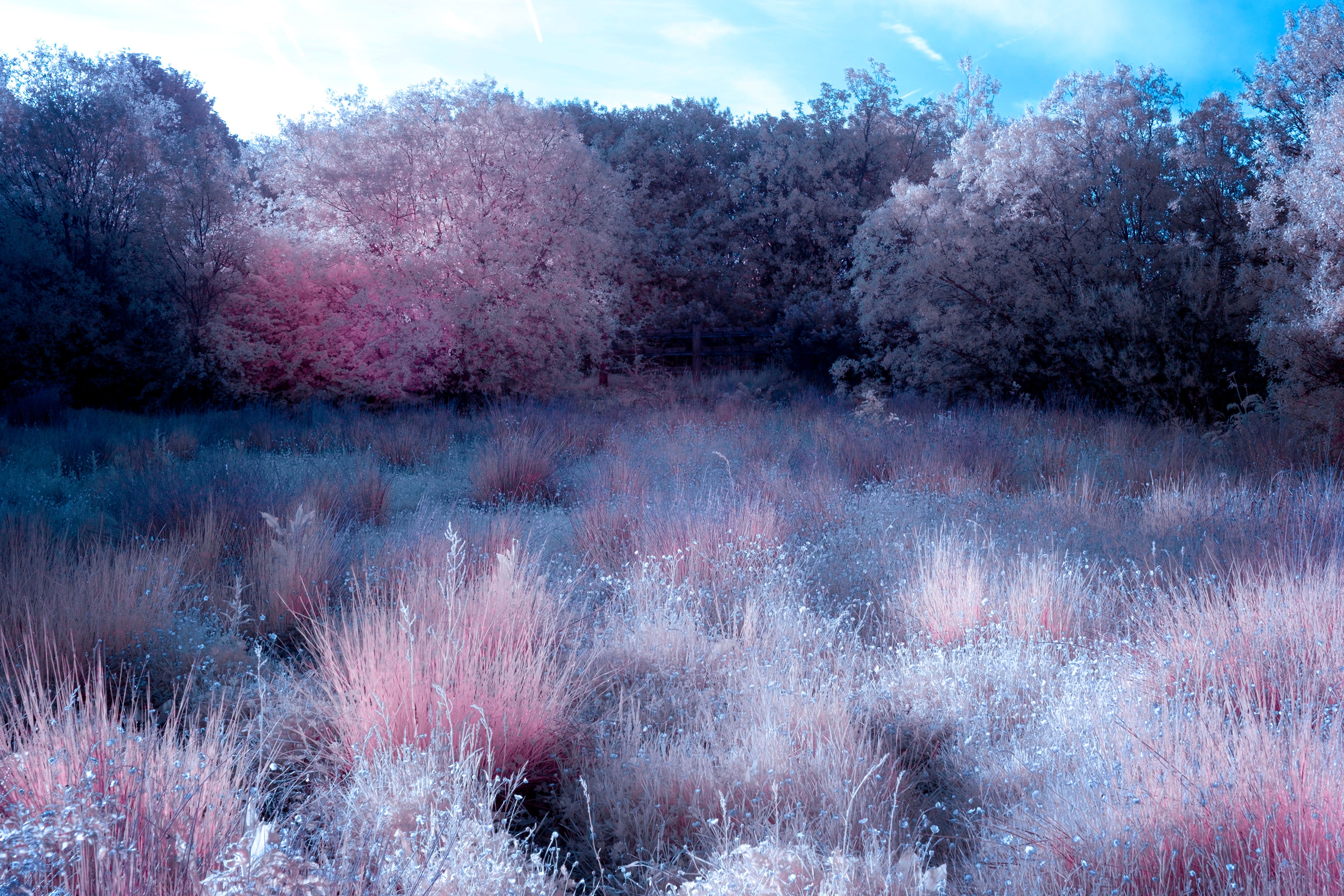
The Fujifilm 35mm 1.4 version has to be my favourite all time lens. I'm constantly blown away by the resolving power of this lens. This Image was taken with a R72 infrared filter on the lens (bit of a misnomer as it filters out every thing but infrared.) on a full spectrum converted XE1.
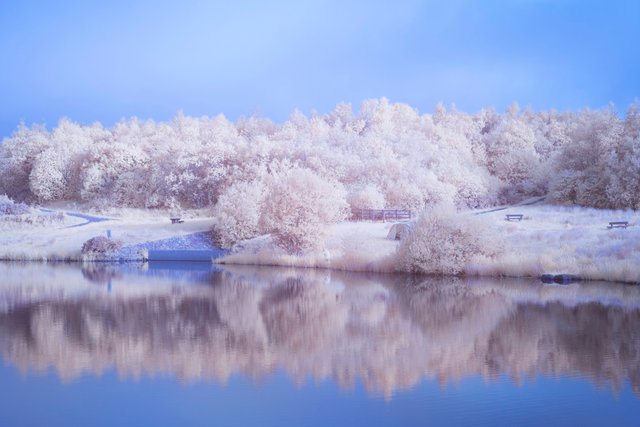
- Camera Fujifilm XE1
- Lens Fujifilm 35mm 1.4 @F4.0 1/200th Iso 200
- Custom Whitebalance taken from the grass
The process of converting a camera to full spectrum involves removing the infrared and ultraviolet filters which Camera manufacturers put in front of the sensor so as to block the parts of the spectrum that the human eye can not see. Else the photos would look a bit weird, skin colours would take on a orange colour cast and the grass turns a brownie colour. On a full spectrum conversion a clear optical glass filter is placed over the sensor so as to protect it.
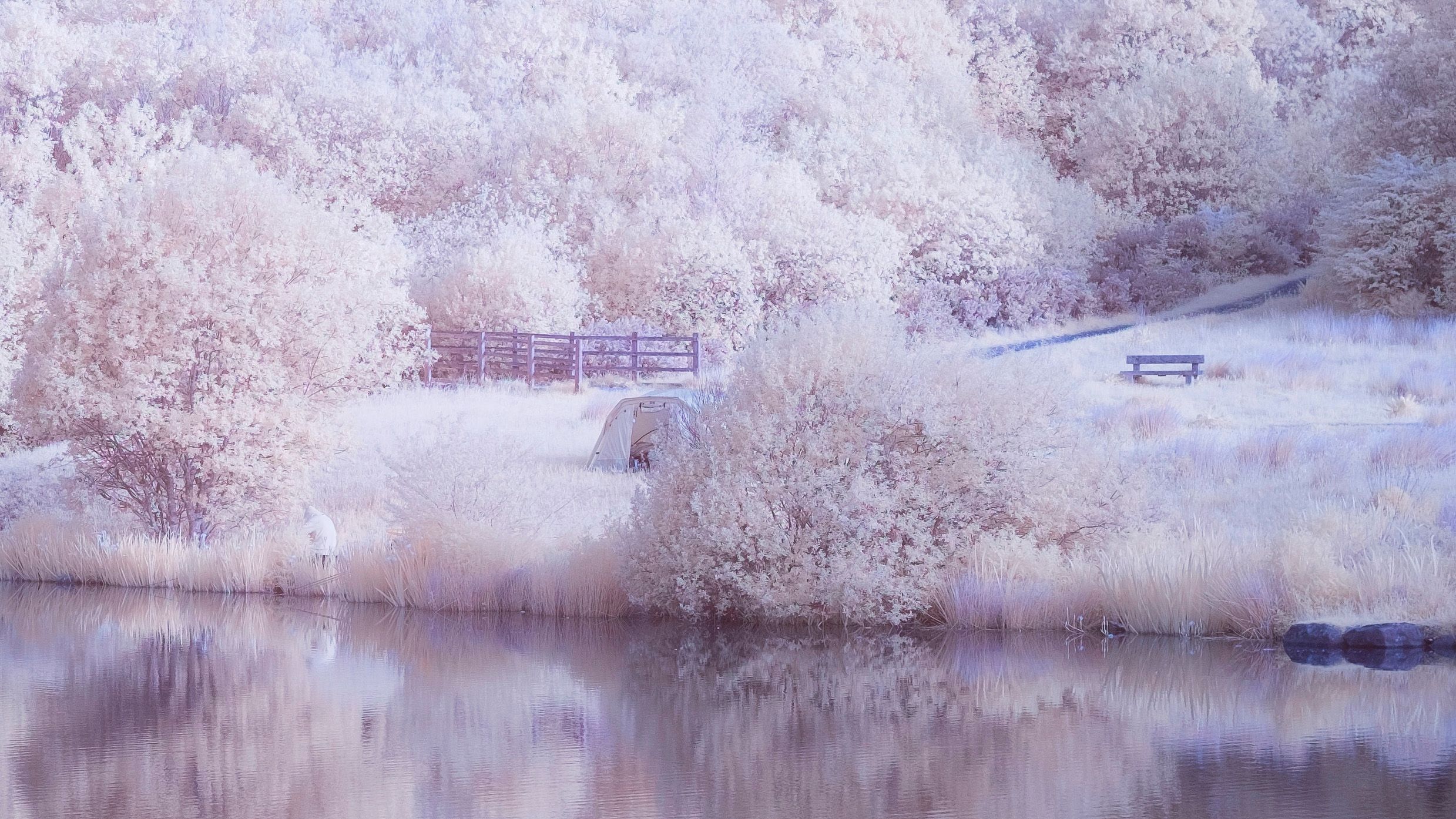
You could have a camera converted to a particular wave length of infrared in which case the "filter" for that wave length would be placed over the sensor instead.
Common Infrared filters include 680nm letting in yellows oranges and reds and blues , 720 reds and blues ,above 830 you just get reds so these are only suitable for black and white photos.
The advantage of having a infrared conversion instead of full spectrum conversion is that you don't have to buy a filter to go on each of your lenses lens if you want to only shoot at that particular strength of IR. You would need to buy an additional filter however if you had a 720nm conversion and wanted to shoot at say 830nm. Of course if you had a full spectrum conversion you would have to buy multiple filters of the same strength as well as different wave lengths for each lens depending on the filter size of that lens. Which can be very expensive as filters are definitely not cheep.
Some people have cameras converted to 800nm and above which means you could never have colour infrared photos just black and white.
You could just add a "Infrared" filter to a normal camera but due to the aforementioned infrared filter in front of the sensor a large amount of infrared is filtered out so you need a longer exposure time to capture enough infrared light so as to exposure the photo correctly. On a normal camera the first image would be around 1/4 of a second compared to 1/200th of a second for a converted camera. So a tripod is a must without a converted camera.
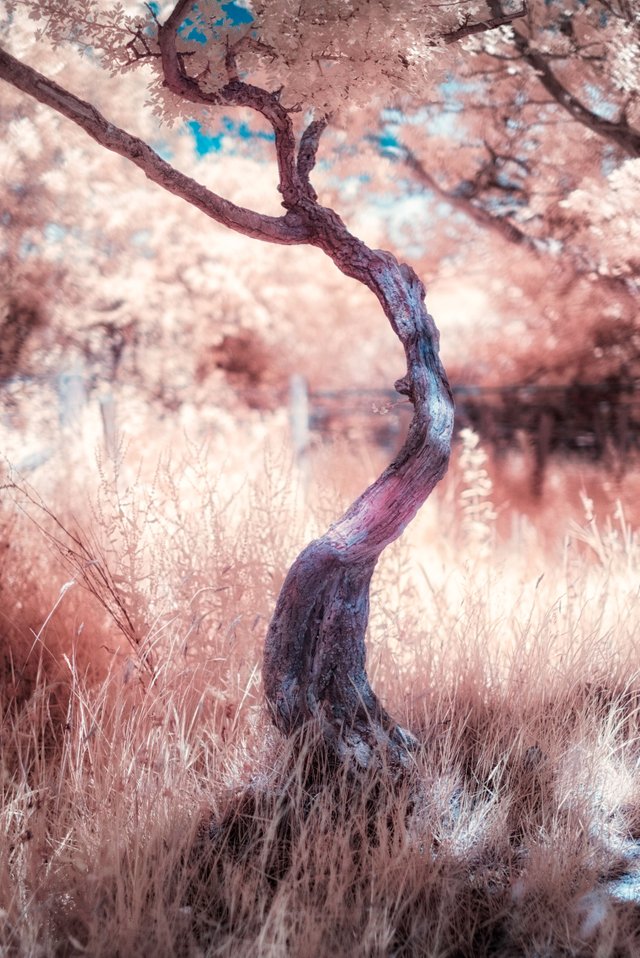
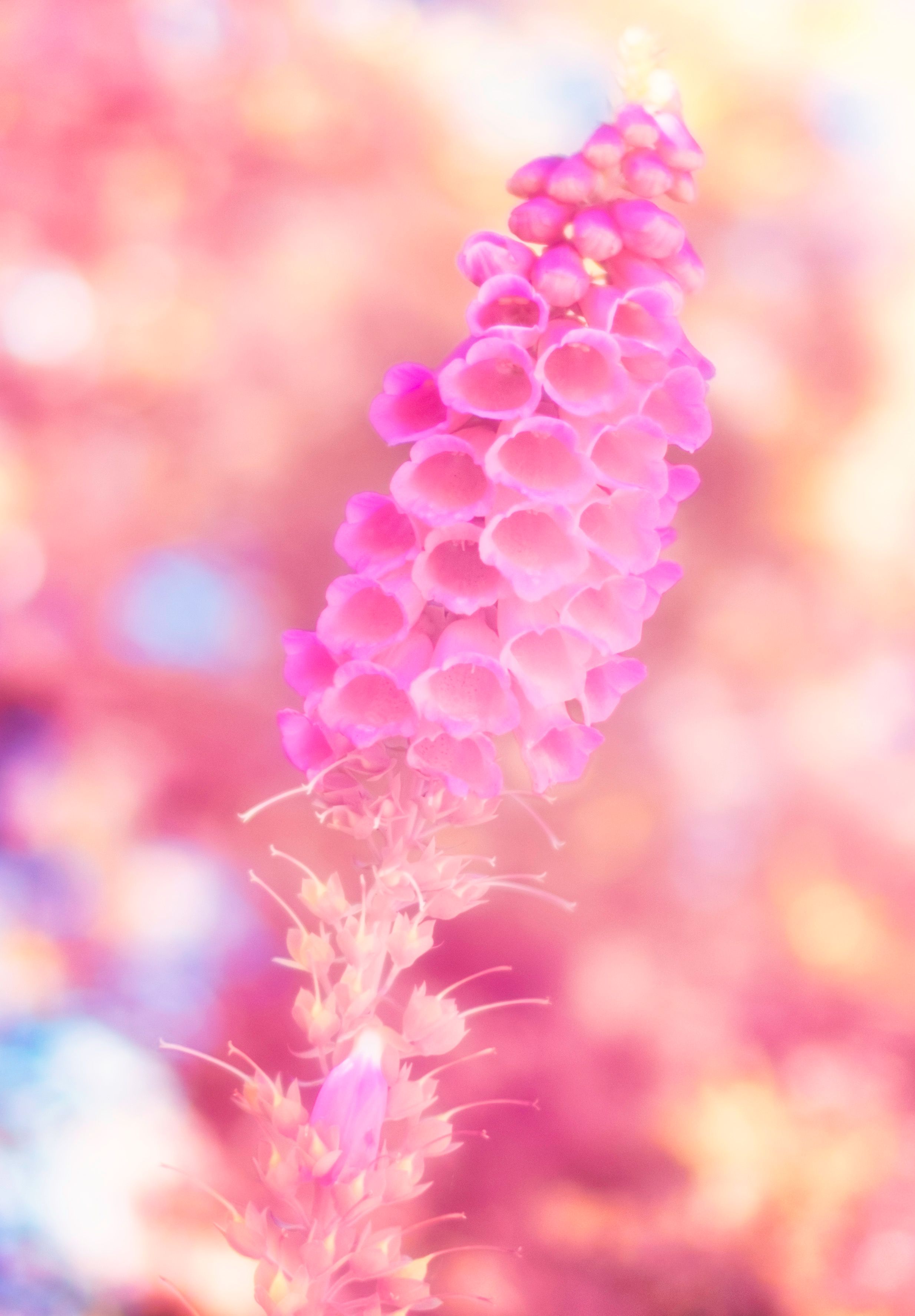
One thing to take into consideration on a converted or non converted camera are the lenses. Not all lenses will give good results, due to the problem of infrared hotspots. This is will show up as bright spots on the photo and is caused by internal reflections due to the coatings inside the len.
To find out if your lenses are suitable for IR photography use the following website.
https://kolarivision.com/articles/lens-hotspot-list/
So if you have an old camera hanging round which you are not using why not have it converted to infrared, there are plenty of places online that do infrared conversions, all over the world. Google is your friend.
Beautiful images
Thank you very much :)
@resteemator is a new bot casting votes for its followers. Follow @resteemator and vote this comment to increase your chance to be voted in the future!
You got a 1.08% upvote from @buildawhale courtesy of @ippai!
If you believe this post is spam or abuse, please report it to our Discord #abuse channel.
If you want to support our Curation Digest or our Spam & Abuse prevention efforts, please vote @themarkymark as witness.
Howdy partner, I'm @photocurator, a curation bot; I keep an eye on the photo feeds, I vote random photos of my followers and at the end of the day I publish a post with links to the best photos. Follow @photocurator to get your photos curated in the future!